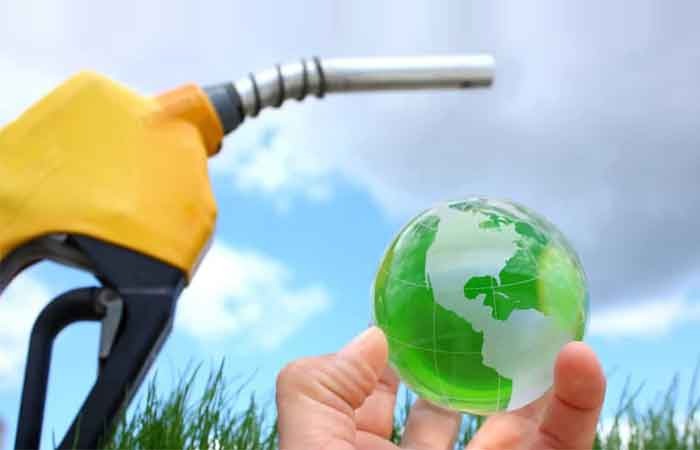
Bio Diesel Summit
Hosted by ICEMA, the Bio Diesel Summit, which was held virtually on January 24-25, 2022, stressed on substituting diesel with alternative fuels.
Congratulating the construction equipment (CE) industry on the initiative for enabling the adoption of bio diesel for construction equipment vehicles (CEVs), Nitin Gadkari, Union Minister for Road Transport and Highways, urged the industry to innovate and make simple alterations to construction equipment to enhance use of bio diesel blends up to 50 per cent as this could be a game changer for the industry.
Speaking at ICEMA’s Bio Diesel Summit, the minister said, “Consistent efforts in this direction and adoption of global best practices will help the CE industry to not only contribute to reduction of pollution, but also enhance overall demand for construction equipment, both domestic as well as exports.”
He also committed to draw up bio-diesel usage standards for construction equipment industry and to accelerate creation of an enabling environment to facilitate operation of bio diesel compliant CEs in India.
With rising global focus on climate and emission reduction commitments and Prime Minister’s vision for India to become a net zero nation by 2070, has given a thrust to the Indian CE industry to explore adoption of alternative fuels like bio-diesel for CEVs. To deliberate on the pathways to move towards bio-diesel adoption, the Indian Construction Equipment Manufacturers Association (ICEMA) hosted the Bio-Diesel Summit themed “Building India’s Tomorrow: Indian CE industry’s Roadmap for Bio-diesel Adoption”.
Bio-diesel is a front runner alternative for the CE industry in the short and medium term, though its availability is limited due to a slew of challenges, making it important to dive deeper into the existing ecosystem. In this context, ICEMA lauded the government’s initiatives to encourage generation of biofuels from urban, industrial, and agricultural waste, and their use for fuel and thermal applications in industries and transport.
Reiterating their commitment to become an increasingly greener industry and supporting the government’s endeavours, Dimitrov Krishnan, President, ICEMA and Managing Director of Volvo CE India, said, “On our part, we set ourselves the target of becoming increasingly sustainable and green through the ICEMA Vision Plan 2030, released in 2020. Over the last two years, we have largely transitioned to CEV IV emissions norms and knowing that bio-diesel can help India reduce its dependence on oil imports, we in the CE industry are exploring this alternate fuel in all earnestness.”
On the encouragement and guidance of Gadkari, ICEMA formed a Bio-Diesel Working Group in 2021 comprising technical and subject experts from government and industry. With the inputs shared by the experts, BCG, ICEMA’s Knowledge Partner prepared a roadmap for adoption of bio-diesel in the CE industry. During the plenary session of the Bio-diesel Summit held, the ICEMA Bio-diesel Working Group presented the roadmap for adopting bio-diesel for CEVs to Gadkari.
The key recommendations of the roadmap were presented in three areas: technology and regulatory landscape for bio-diesel adoption for CEVs; de-bottlenecking supply and availability of bio-diesel in India, and nurturing and sustaining demand of the fuel for CEVs.
Given the good potential of bio-diesel, the Government has been requested to consider expanding the sources of feedstock including edible and non-edible sources with lower NOx emissions, establishing fuel standards and long-term availability of bio-diesel and help build partnerships and collaborations among key stakeholders for simplification of certification/ approval processes to encourage bio-diesel adoption.
The recommendations also urged the industry to invest in potential solutions and ensure that current OEM warranties remain valid even with use of bio-diesel blended fuels.
On de-bottlenecking supplies, the working group recommended that the Government help in setting up a structured “Feedstock Production Programme” across India by involving the relevant ministries, put in place measures to regulate export of bio-diesel as well as key raw materials, build large-scale bio-diesel refineries, develop structured pricing mechanisms for bio-diesel, and incentivising and subsidising key raw material, plant and equipment of bio-diesel.
On nurturing the bio-diesel demand, the Working Group has urged the Government to consider creating a local ecosystem for entrepreneurs to blend bio-diesel and distribute to ensure sustainable supply over the next 15 years. The recommendations also included extension of rebate on fuel price for CE end-users based on bio-diesel (B100 level) consumption, and reduction of GST by 1 to 2 per cent on construction equipment certified as being capable of running with B5/B20 blends.
V Vivekanand, Vice President, ICEMA and Director, Caterpillar India, while thanking the minister for his vision and guidance said that the Bio-Diesel Summit was the beginning of the journey for the Indian CE industry to become greener. Reiterating the CE industry’s commitment to building India’s tomorrow sustainably, he said that exploring bio-diesel adoption is one of the first steps in that direction.
Going forward, ICEMA will work with the Ministry of Road Transport and Highways and other related Ministries to arrive at an implementable roadmap.


 +91-22-24193000
+91-22-24193000 Subscriber@ASAPPinfoGlobal.com
Subscriber@ASAPPinfoGlobal.com